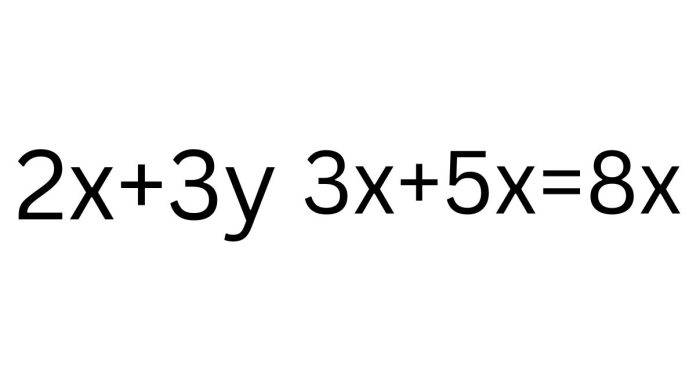Like and Unlike Terms
In algebra, terms are parts of an expression that are separated by addition or subtraction signs. Terms can be categorized as like or unlike based on their variables and exponents.
Like Terms
Like terms are terms that have the same variable(s) raised to the same power. They can have different coefficients (the numerical part), but the variables and their exponents must be identical.
For example:
- 3x3x and 5x5x are like terms because both contain the variable xx with an exponent of 1.
- 4y24y^2 and −7y2-7y^2 are like terms because both contain the variable yy raised to the second power.
Like terms can be combined through addition or subtraction. For instance:
3x+5x=8x3x + 5x = 8x 4y2−7y2=−3y24y^2 – 7y^2 = -3y^2
Unlike Terms
Unlike terms are terms that have different variables or the same variables raised to different exponents. These terms cannot be combined through addition or subtraction because they are fundamentally different in terms of their variable part.
For example:
- 2x2x and 3y3y are unlike terms because they have different variables (xx and yy).
- 4x24x^2 and 2x32x^3 are unlike terms because the variables have different exponents (2 and 3).
Unlike terms cannot be simplified by adding or subtracting them. For instance:
2x+3ycannot be simplified further.2x + 3y \quad \text{cannot be simplified further.}
Summary:
- Like terms: Have the same variable(s) with the same exponent(s) and can be combined.
- Unlike terms: Have different variables or exponents, and cannot be combined.


